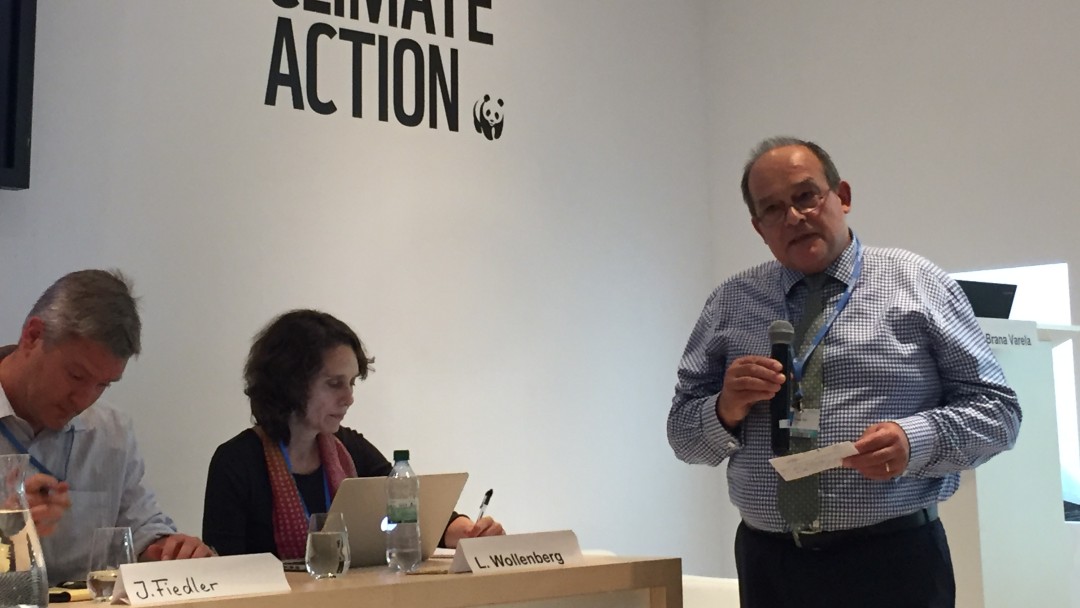News from 2017-11-14 / KfW Development Bank
Carbon sinks are underestimated
They could contribute immensely to climate protection.

Carbon sinks could play a significant role in helping achieve the 1.5-2.0°C goal, but they are still underestimated in climate protection policy. This was the outcome of a side event organised by KfW and the WWF at the COP23 conference in Bonn.
Carbon sinks store CO2 and can thus produce the so-called "negative emissions". This is required to balance CO2 emissions particularly in places where reduction is either difficult or comes at high costs. According to Lini Wollenberg from Low Emissions Agriculture, negative emissions will play a greater role in the future. In her keynote statement, Ms Wollenberg argued that this is the only way CO2 emissions can be reduced to zero by the middle of this century as intended. "For this reason terrestrial carbon sinks should be given much more attention in the future."
Much of the potential remains untapped
There are many natural ways through which carbon can be absorbed. The most common method is reforestation. However, a less known but equally effective way is the so-called biochar: It is fed into the soil, which can thus absorb additional quantities of CO2. By changing land management and cultivation methods, it is also possible to absorb carbon from the air. Moreover, swamps and wetlands are excellent carbon deposits.
Lin Wollenberg concluded that all in all, a combined volume of between 10 and 25 gigatonnes of CO2 could be saved annually by targeted exploitation of natural carbon sinks. In comparison, Germany emits around 0,9 gigatonne of CO2 equivalents annually.
Forest, agriculture and swamps
In the ensuing discussion, there was a general consensus that although there is a great potential across the globe - and particularly in the industrialised countries - for terrestrial carbon storages resulting from adapted land cultivation, their usage is still low. Participants repeatedly called for this subject to be pushed. KfW team leader Peter Hilliges noted that although KfW was following promising approaches such as rewetting swamps or REDD+ in forest conversation, they had not yet been implemented on a larger scale with significant participation of other donors.
According to Jeff Fiedler from the American NGO "Forest Trends", the same applies to agriculture, where organic carbon is hardly used. Yet this method "could be particularly effective on tropical soils since carbon improves their nutrient balance", as noted by Martin Lux, sector economist at KfW, at the sidelines of the COP.
Nevertheless, carbon sinks should not be used as an excuse for not reducing CO2 emissions, which would definitely be a wrong signal: "We need all forms of reduction", the audience insisted.

Share page
To share the content of this page with your network, click on one of the icons below.
Note on data protection: When you share content, your personal data is transferred to the selected network.
Data protection
Alternatively, you can also copy the short link: https://www.kfw-entwicklungsbank.de/s/enzBWrMC.BsCA
Copy link Link copied